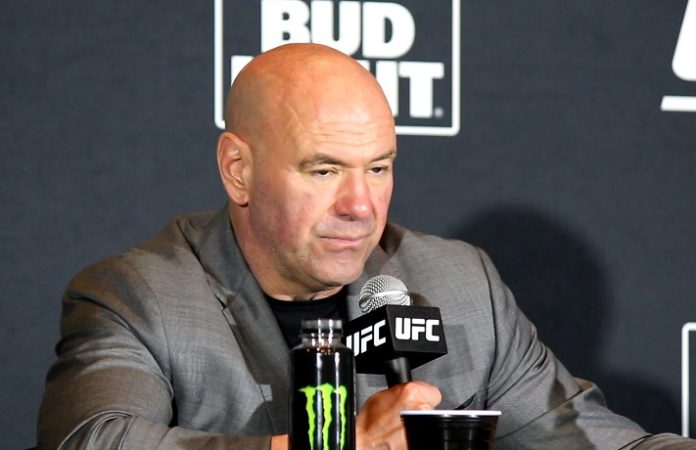
An apparent settlement between the UFC and lawyers representing over a thousand fighters covered by a pair of class action lawsuits is on hold.
Earlier this spring, the UFC appeared to have settled not one but two class action lawsuits against them that accused the promotion of keeping fighter wages artificially low through monopolistic/monopsonistic business practices. That settlement, widely reported to be in the neighborhood of $335 million dollars, was a far cry from the potential $1.6 billion they might have been on the hook for had the case headed to trial.
Now, in a last minute snag, that settlement is in question, after the Las Vegas Federal Court judge overseeing the case declined to approve it on Friday, citing concern over the comparatively low dollar figure fighters in the cases brought by Cung Le et. al and Kajan Johnson will receive.
Paul Gift, who has covered the case for Forbes and Bloody Elbow along the way, was first to break news of the development. As noted in his initial report, all parties are expected to meet again in two weeks’ time, to discuss financials including a fighter by fighter breakdown in the two cases.
The judge in the case, Hon. Richard F. Boulware, is required to sign off on any settlement. Should he not, there is a chance, however unlikely, that the two parties head to trial.
The original case filed by fighters including Le, Jon Fitch, and Nate Quarry, dates back to 2014, and covers fighters active with the promotion from 2010 to 2017. The Johnson lawsuit covers a later period, with TKO Group, under which the UFC is now housed, opting to settle both in one go back in late March, ahead of UFC 300 the following month.
The lawsuit focused on what judge Boulware at one pointed called “ruthless and brutal coercive tactics” on the part of the UFC, including long-term exclusive contracts, forcing fighters into difficult match-ups if they refused to sign new deals, and the elimination or acquisition of competitors.




















